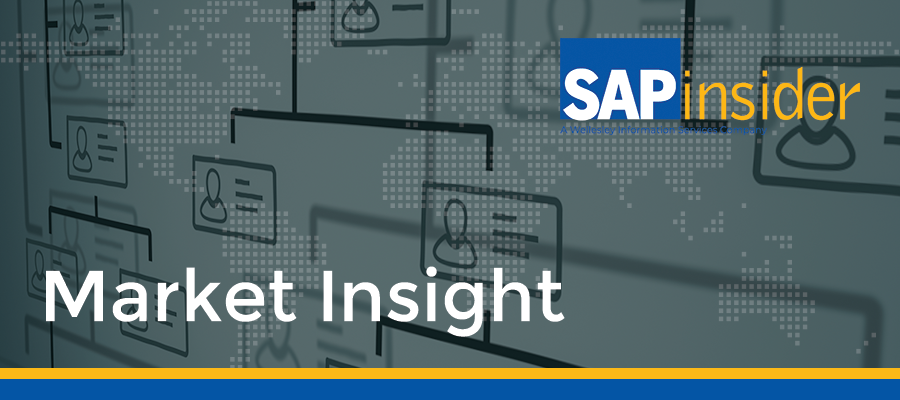What Intelligent Robotic Process Automation (RPA) Capabilities Are on the Horizon for SAP Customers
With the November 2018 announcement of SAP’s acquisition of Contextor SAS — a French software vendor that has focused on designing and integrating robotic process automation (RPA) solutions since 2000 — a lot of SAP customers are wondering what this will mean for the future of their SAP applications. And some are probably wondering what RPA even means in general.
In a nutshell, RPA is a form of artificial intelligence (AI) technology that drives connections and automates clicks in software applications without the need for developers to write code or create interfaces to the back-end system. RPA tools can automate common and repetitive tasks that business users perform in an application’s graphical user interface (GUI) by repeating a set of actions demonstrated by a user directly in the GUI, and these tasks can involve process steps where data is transmitted between multiple applications, including SAP and non-SAP systems. One example of an area where RPA could come into play is automating the repetitive process for a user who routinely receives emails when an order is processed, extracts the data, and then keys that information into a back-end system.
Contextor’s software was designed specifically to deliver application assistants, wizards, and stand-alone bots to relieve users from performing these repetitive tasks and to enable both attended and unattended RPA within and across applications. Previously, Contextor had seen steady growth in Europe — delivering customers more than 100,000 RPA bots automating business processes — however the analytics capabilities delivered were not rated highly. The acquisition will bring state-of-the-art SAP analytics capabilities to Contextor’s technology, and it will help SAP accelerate and expand its SAP Leonardo portfolio with added RPA capabilities that simplify GUI interactions across SAP and non-SAP applications.
Combining Contextor’s RPA technology with SAP Cloud Platform, SAP Leonardo AI, and SAP Leonardo Machine Learning capabilities into a collective offering, SAP aims to deliver what it calls “intelligent RPA” to its global customer base. It plans to include intelligent RPA in key solutions to automate half of all the business processes supported by its SAP ERP software over the next three years.
In a press release from SAP regarding the Contextor acquisition, the Head of Machine Learning at SAP, Markus Noga, tells SAP customers that RPA will first be incorporated into SAP S/4HANA. This integration is expected to start taking shape in the first half of 2019 — with intelligent RPA then becoming part of the SAP Cloud Platform and SAP Leonardo offerings, and additional SAP applications (such as SAP SuccessFactors solutions) likely to follow next.
SAP has yet to provide exact details on what applications will roll out intelligent RPA and in what order to expect them. But for the time being, the Contextor technology seems to supplement the SAP Leonardo portfolio promisingly. Within six months, SAP customers will know whether SAP has delivered on its promise of intelligent RPA. We’ll just have to wait and see what the future holds.
In the meantime, SAP customers can start to think about different areas of the business or certain business processes where they might be able to apply intelligent RPA. A recent SAPinsider blog gives some great examples of several potential use cases to explore in SAP systems: supplier evaluation, interface monitoring, workflow monitoring, purchase order follow-up, and data consistency checks. These are good entry points to explore as you start considering what tasks your company can accomplish with RPA in the near future.




